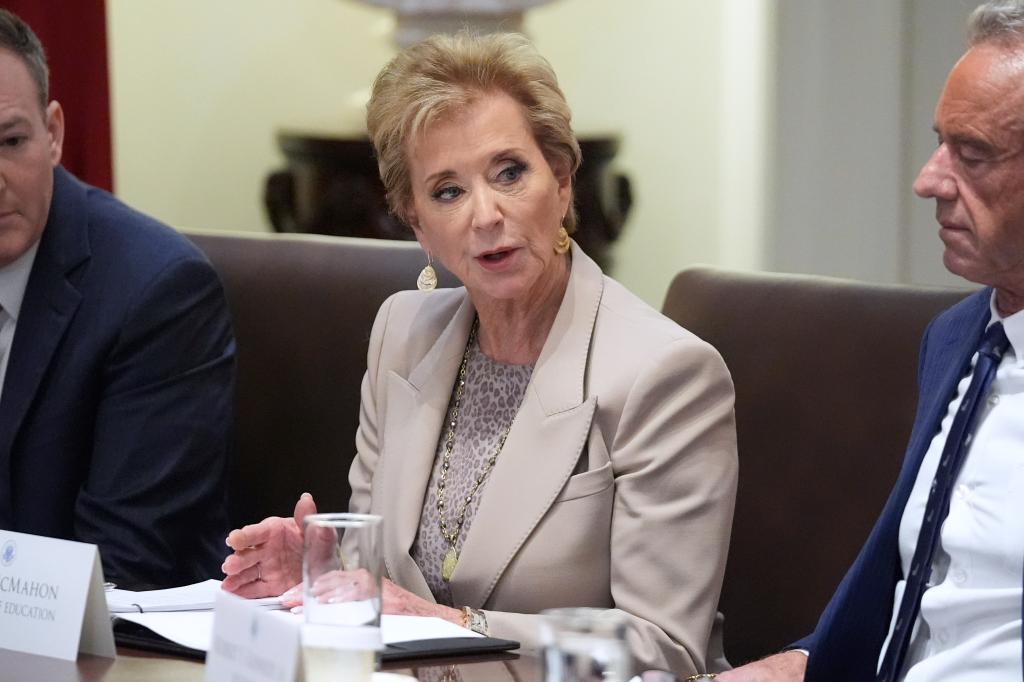Trump Demands Harvard Pay $500 Million to Resume Federal Funding
In a bold and contentious move that has sent ripples through higher education circles, President Trump has directed Secretary of Education Linda McMahon to demand at least $500 million from Harvard University as a prerequisite for restoring $2.4 billion in federal grants. The directive came with unmistakable firmness: “We want nothing less than $500 million from Harvard. Don’t negotiate, Linda. They’ve been very bad,” Trump stated, setting a confrontational tone in what has become a high-stakes standoff between one of America’s most prestigious universities and the federal government. This unprecedented financial demand represents a significant escalation in the administration’s approach to addressing what it perceives as ideological issues within elite academic institutions, creating uncertainty for students, faculty, and academic freedom advocates across the country.
The conflict stems from earlier this year when the Trump administration cut off billions in federal funding to the Cambridge, Massachusetts institution, citing concerns about Harvard’s diversity, equity, and inclusion (DEI) initiatives. Additionally, the administration alleged that the university failed to adequately protect Jewish faculty and students from discrimination and hate on campus. These accusations came during a period of heightened tensions on many college campuses related to Middle East conflicts, with the administration positioning itself as a defender of Jewish students while simultaneously targeting diversity programs that have been central to many universities’ missions in recent years. The dual nature of these complaints has created a complex situation where Harvard must navigate both protecting vulnerable groups while also responding to federal pressure against equity initiatives.
The president’s July statement that “Harvard wants to settle” revealed his strategic approach to pressuring elite universities, pointing to Columbia University as a precedent. Columbia reportedly regained its federal grant funding after agreeing to a $200 billion fine to resolve civil rights violations allegations. This comparison suggests the administration is implementing a pattern of financial penalties against institutions it views as ideologically problematic, establishing what critics might call a pay-to-play system for universities seeking to maintain vital federal research and educational funding. For Harvard, with its $50+ billion endowment, the demand represents a substantial but not existentially threatening amount, though the precedent it sets has alarmed many in higher education who worry about government leverage over academic institutions.
Beyond the financial penalties, the Education Department has outlined various policy changes Harvard must implement, including stricter rules against antisemitism and requirements to share foreign student information for federal vetting. These demands reflect broader administration concerns about campus climate issues and potential national security considerations related to international students. For Harvard, compliance would mean not only a significant financial outlay but also potential changes to campus policies that many faculty and students might view as compromising institutional autonomy and academic freedom. The university faces difficult choices between financial stability, principle, and the practical needs of its research programs that depend heavily on federal grants.
The situation highlights the growing tension between political forces and higher education institutions in America, where universities increasingly find themselves caught in culture war battles with real financial consequences. Harvard, as perhaps the most recognizable brand in American higher education, has become a symbolic battleground for larger ideological conflicts about what role universities should play in addressing societal inequities and protecting diverse populations. The administration’s aggressive approach suggests a willingness to use federal funding as leverage to influence university policies in ways that extend beyond traditional oversight, raising questions about the independence of academic institutions and the appropriate boundaries of government influence.
As this high-stakes negotiation continues, the outcome will likely set important precedents for the relationship between the federal government and universities nationwide. If Harvard accedes to these demands, other institutions may face similar pressures, potentially reshaping how universities approach everything from diversity initiatives to campus speech policies to international student programs. Conversely, if Harvard chooses to contest these demands through legal or other means, it could trigger a prolonged conflict with significant implications for federal research funding across higher education. Either way, this confrontation represents a defining moment in the evolving relationship between political power and academic institutions in America, with consequences that will extend far beyond Harvard’s Cambridge campus or the current administration’s tenure.


